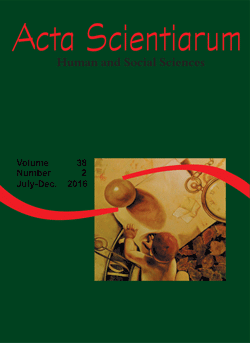<b>Rousseau and corruption: can we deconstruct it?
Abstract
There is no state without subjects. For Rousseau state-building requires the direct participation of citizens. The active participation of citizens will result in the expression of the general will. It is the general will that, via social pact, gives life and unity to the state. The state is a political body design. The active participation of citizens in order to prevent corruption and dissolution of society refers to the conception of popular sovereignty. In this mode of sovereignty, citizens would be able to build and maintain the foundations of civil society. Rousseau, as a contractualist, thinks his time and political solutions to the real problems of his time. So from this scenario between theory and practice, Rousseau will start to set up the distinction and the relationship of this important tripod: Sovereign, Legislator and Prince.
Downloads
DECLARATION OF ORIGINALITY AND COPYRIGHTS
I Declare that current article is original and has not been submitted for publication, in part or in whole, to any other national or international journal.
The copyrights belong exclusively to the authors. Published content is licensed under Creative Commons Attribution 4.0 (CC BY 4.0) guidelines, which allows sharing (copy and distribution of the material in any medium or format) and adaptation (remix, transform, and build upon the material) for any purpose, even commercially, under the terms of attribution.
Read this link for further information on how to use CC BY 4.0 properly.
























